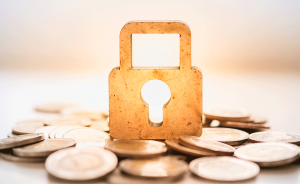 If you’re in the market for a personal loan, you’ve probably heard a lot of talk about secured vs. unsecured loans. You may have even seen rate differences between the two. You might be wondering just how much difference there is between a secured personal loan and an unsecured personal loan. Read on to find out.
If you’re in the market for a personal loan, you’ve probably heard a lot of talk about secured vs. unsecured loans. You may have even seen rate differences between the two. You might be wondering just how much difference there is between a secured personal loan and an unsecured personal loan. Read on to find out.
- The main difference between a secured and unsecured personal loan is this. To get a secured loan, you need collateral. Just as a house is held as collateral in the case of a mortgage loan and auto for an auto loan, you need some type of collateral for a secured personal loan. Your collateral might be money in a traditional savings or credit union share account, share certificate or CD. If you are approved for a secured loan, a lender will put a lien on an asset until the loan is paid off. An unsecured personal loan, by contrast, does not require any collateral. Examples of unsecured loans can include credit cards, student loans, unsecured personal loans and unsecured personal lines of credit.
- Secured personal loans typically have lower interest rates than unsecured loans. Makes sense, right? A lender is taking a bigger risk with an unsecured personal loan, so it seems logical that the interest rate would be a bit higher on a riskier loan. As with any type of loan, your credit score and payment history also come into play when qualifying for a lower interest rate.
- Secured personal loans may have a higher borrowing limit or longer repayment terms than unsecured personal loans. Again, this is dependent on the lender and also the collateral used for the loan.
- A secured personal loan may be easier to get. There’s “no one size fits all” when it comes to qualifying for a personal loan. Each lender may have different requirements when it comes to qualifying. Of course, credit score, your income, and existing debt are big factors in getting approved for any loan. If your credit is shaky or you’re just starting out and don’t have much credit history, a secured personal loan from your local credit union might be easier to get. Handled responsibly, it may also help you to build your credit history. Keep in mind that a drawback of a secured loan is that you risk losing the collateral if you default on the loan.
Which is right for you – A secured personal loan or an unsecured loan?
When trying to decide between a secured and unsecured personal loan, it may come down to your credit score and the amount you need to borrow. If you can’t qualify for an unsecured personal loan in the amount you need, you may opt for a secured personal loan. If your credit history is strong you may be able to achieve your borrowing goals without any collateral.
Applying for personal loans
Although you can get a personal loan at a credit union, a bank or another lender, all might not offer a secured loan option. As always, when borrowing from Benchmark Credit Union, we offer both secured and unsecured personal loans, as well as a convenient, local lending decision-making process. Still confused? Talk to your credit union lender for more information. Remember, no matter which type of personal loan you choose, secured or unsecured, you should always shop around to compare personal loan rates, fees, lending limits and terms.
Learn more about Benchmark Federal Credit Union personal loans online or read our blog, when to choose personal loans over other credit. Always keep in mind that not repaying a loan can negatively affect your credit history and credit score. Not repaying a secured loan can also jeopardize your collateral.



